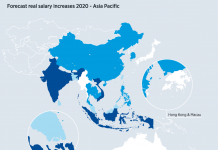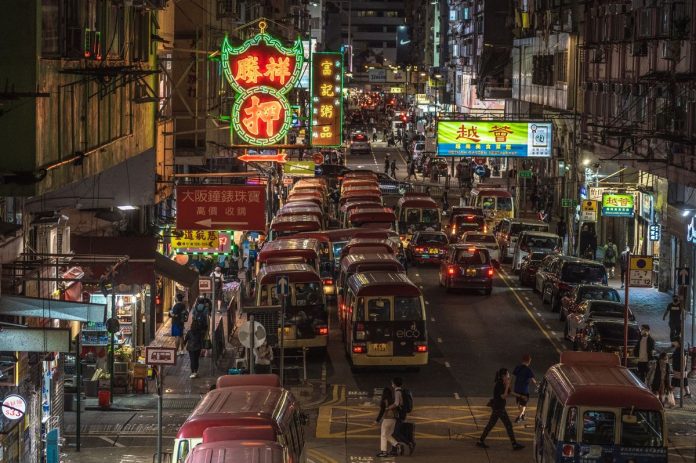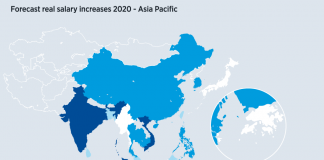Hong Kong will open an office dedicated to “trawling talent” from overseas in an effort to revive the city’s battered reputation as a global business hub. In his inaugural policy address Wednesday, Chief Executive John Lee unveiled a raft of measures, including tax breaks and looser visa rules, aimed at reversing a brain drain fuelled by strict COVID-19 measures
Hong Kong’s top politician said his government will establish an Office for Attracting Strategic Enterprises (OASES) and a new co-investment fund worth 30 billion Hong Kong dollars ($3.8 billion) to invest in businesses that set up shop in the city. “Over the past two years, the local workforce shrank by about 140,000. Apart from actively nurturing and retaining local talents, the government will proactively trawl the world for talents,” Lee said in a two-hour speech. Hong Kong’s population fell to 7.29 million at the end of June, from 7.5 million in mid-2020, as residents and expatriates decamped from a city that largely cut itself off from the world with a mandatory hotel quarantine and other virus-control measures that mirrored mainland China’s strict COVID policies.
The new employer-seeking office will draw up a list of key sectors to target, including health care technology, artificial intelligence and financial technology, while leaning on Hong Kong government offices around the world to lure companies to the city. It will provide a one-stop service for foreign talent, including visa arrangements and school placement for children, while helping businesses get up and running.
Among the other new measures is two-year visa program for people earning more than HK$2.5 million ($318,000) a year, as well as for those graduating from the world’s top universities. In a move aimed at making it easier for local employers to hire foreign staff, the city will scrap an annual quota and hiring restrictions under its existing Quality Migrant Admission Scheme. Employers in the technology sector will get a waiver on current rules that require proving no local candidate can fill an open position.
Overseas workers who become permanent residents after living in Hong Kong for seven years will now get a rebate on stamp duty, a tax paid on property purchases. Non-permanent residents are currently required to pay an additional 15% stamp duty, on top of a 15% first-home buyer levy. But under the new policies, the government will refund the full 30% tax.
Lee said the new measures will boost Hong Kong’s competitiveness as it loses ground to rival Singapore, which has taken advantage of the Chinese city’s slow reopening to the world. “Our priority is to reinforce our position as an international financial center and promote the development of two emerging industries, namely I&T and arts and culture,” he added.
The city’s stock exchange was also set to make it easier for startups and technology companies to raise funds, as the bourse on Wednesday reported a nearly 30% quarterly profit drop on the back of sluggish trading volumes and one of the weakest IPO markets in years.
Robert Speers, Hong Kong-based principal of financial services practice at executive search company Heidrick & Struggles, welcomed the slate of measures as a way to “reinvigorate international talent attraction.” Some industry insiders said the schemes could plug an outflow of senior executives, but questioned whether the property tax cuts would work. “The first thing overseas arrivals think of is renting, not buying, to get a feeling of what the city is like. There’s nothing on rental schemes for employees. It’s not that attractive,” said Armstrong Lee, managing director of Worldwide Consulting Group.
Nikkei Asia




















